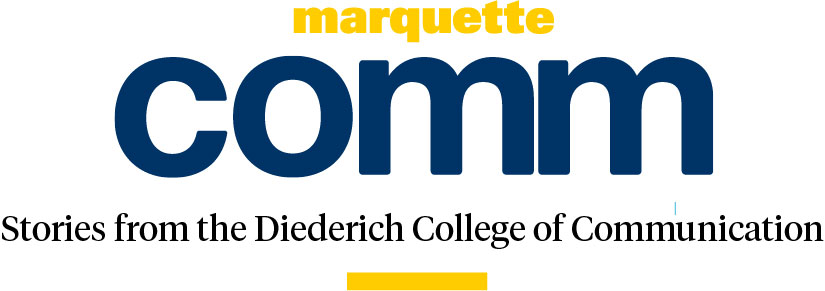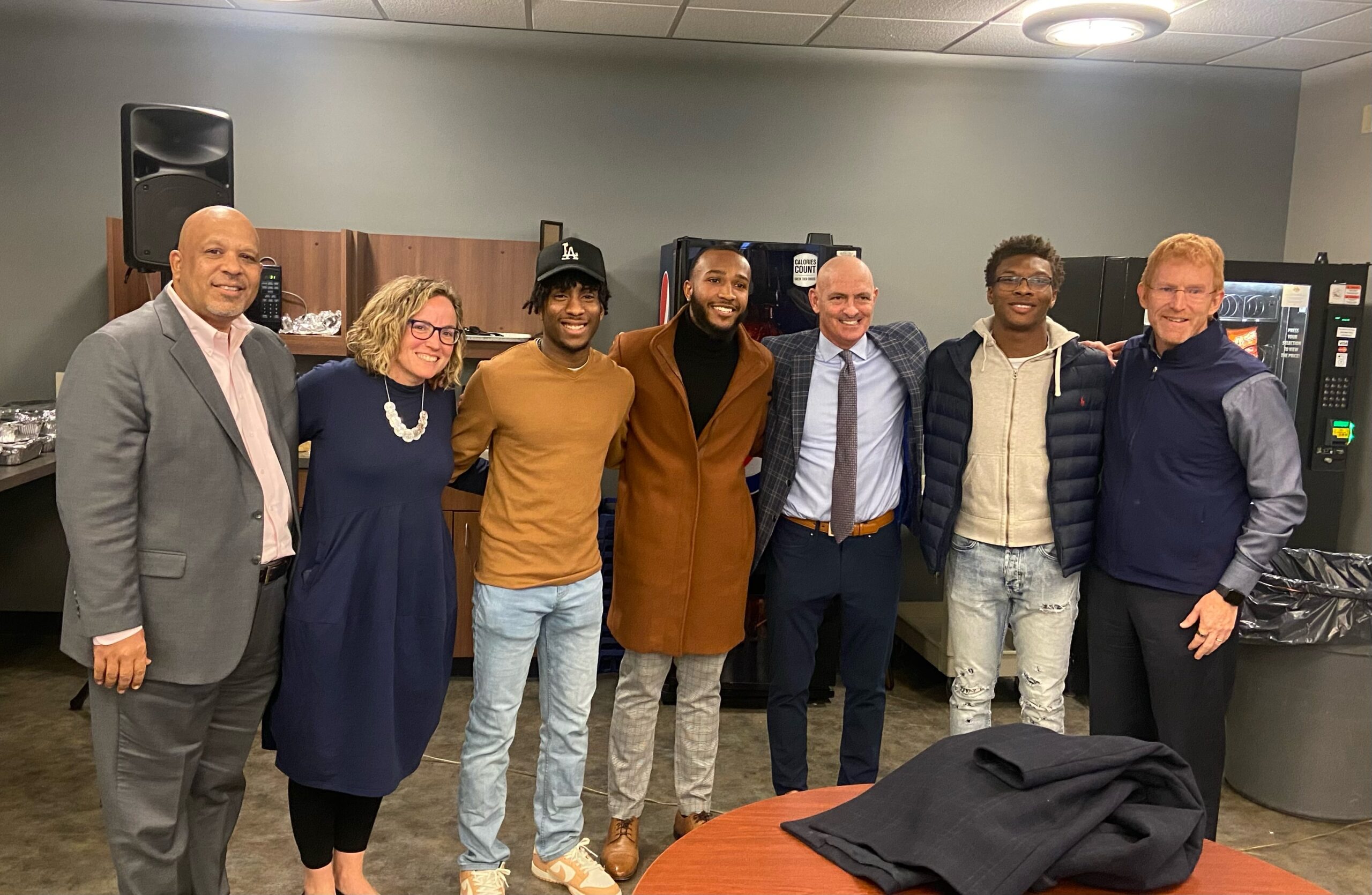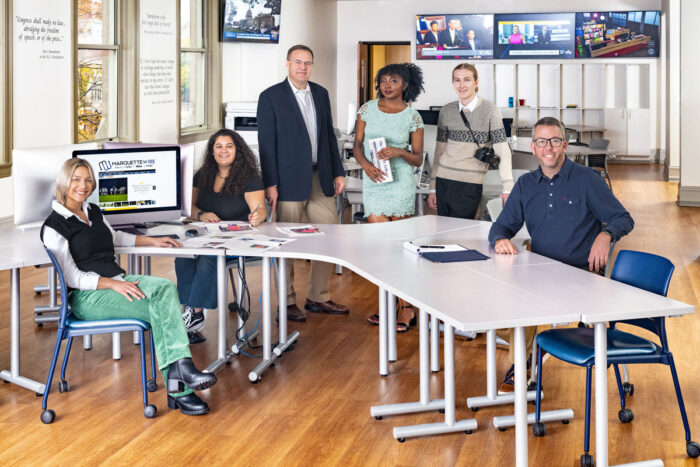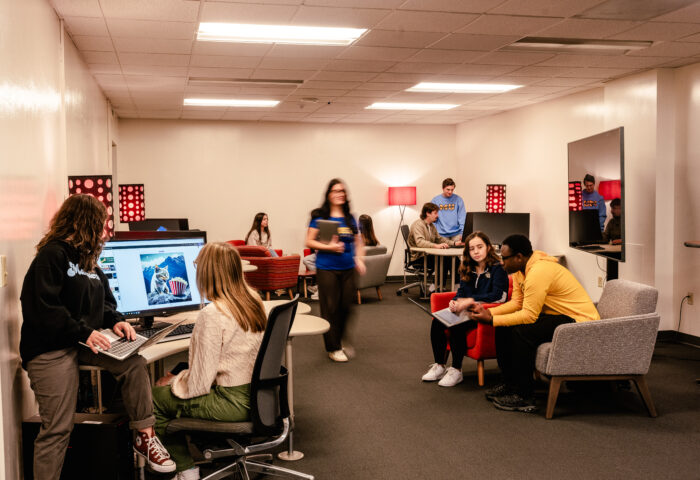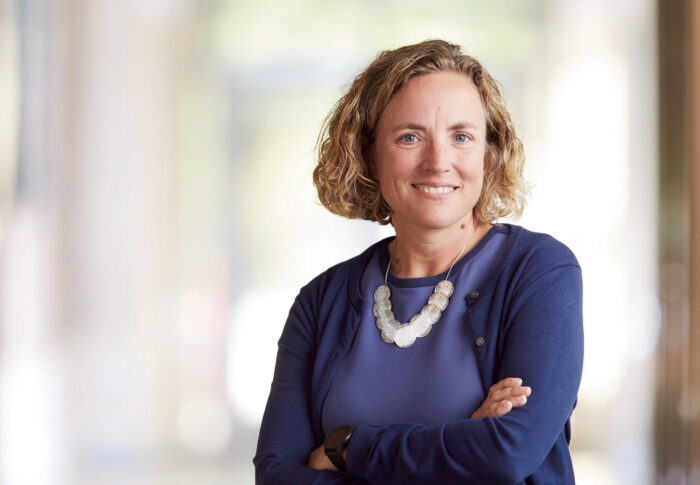Last fall, Diederich College of Communication junior JJ Flippins had been thinking a lot about the different ways students experienced a sense of community at Marquette, particularly the ways in which students from varying backgrounds may be struggling to find where they belong.
In a meeting with his adviser Dr. Sarah Feldner, dean of the Diederich College of Communication, the two talked about what more might be done to offer support and community on campus, particularly to students of color. In doing so, Feldner challenged Flippins and fellow students Johnnie Brooker and Christian Golden to think differently about what kind of college-level programming could provide a feeling of belonging and inclusivity.
“That’s when the golden idea came about: Let’s do a soul food night in Comm to bring everyone together,” Flippins, a Louisville, Kentucky native, says. “Since it was November and Thanksgiving was just around the corner, it was a no brainer.”
As it turned out, this “Friendsgiving,” as they dubbed it, meant a lot to the nearly 250 people who showed up that night. The Diederich College threw open the doors of Johnston Hall and invited the entire campus community to come in and fill up their plates.
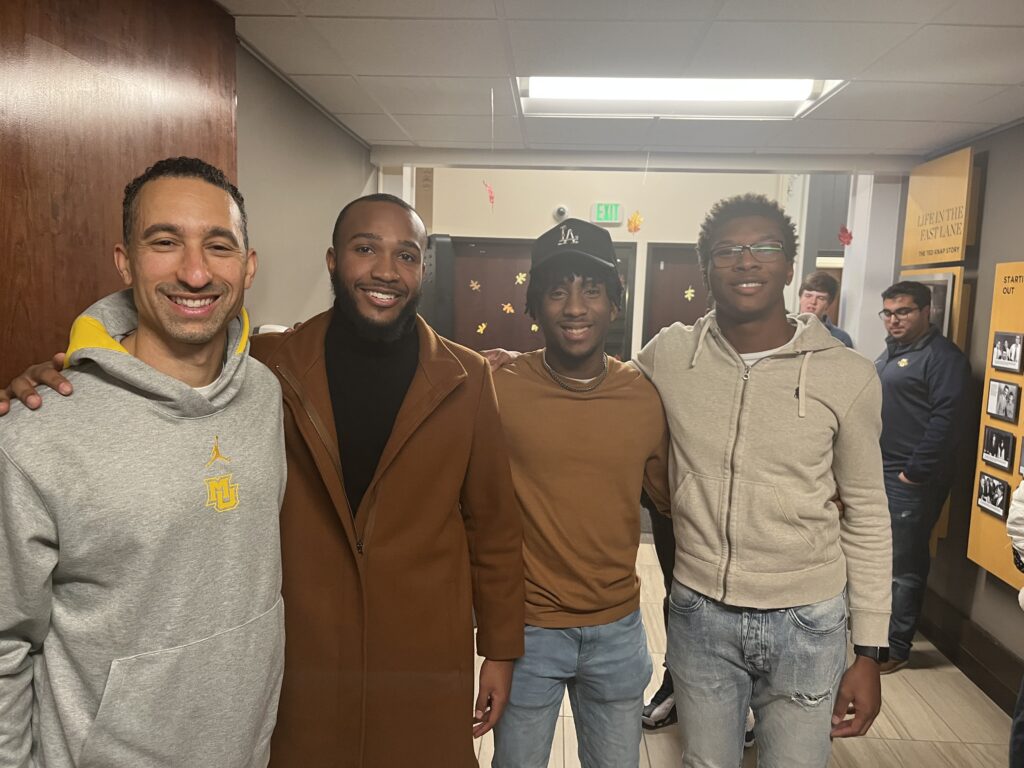
Even a few special guests showed up, including President Michael R. Lovell, Provost Kimo Ah Yun, and Marquette Men’s Head Basketball Coach Shaka Smart and several players — something the students who planned the event had hoped for.
Tables were set up in a hallway on Johnston Hall’s first floor, nearly bowing under trays of macaroni and cheese, fried chicken and brisket. A student-curated playlist filled the air with upbeat music as students mixed and mingled over food.
Brooker notes that his main takeaway from the night — other than college students’ love of free food — was how important it is for students to have a message of inclusivity: “The Diederich College of Communication wants to be an advocate and support its students.”
The second — and hopefully annual — Friendsgiving was held on Wednesday, Nov. 15. This year, the college partnered with the Educational Opportunity Program, a federally funded academic program for low income and first-generation students.
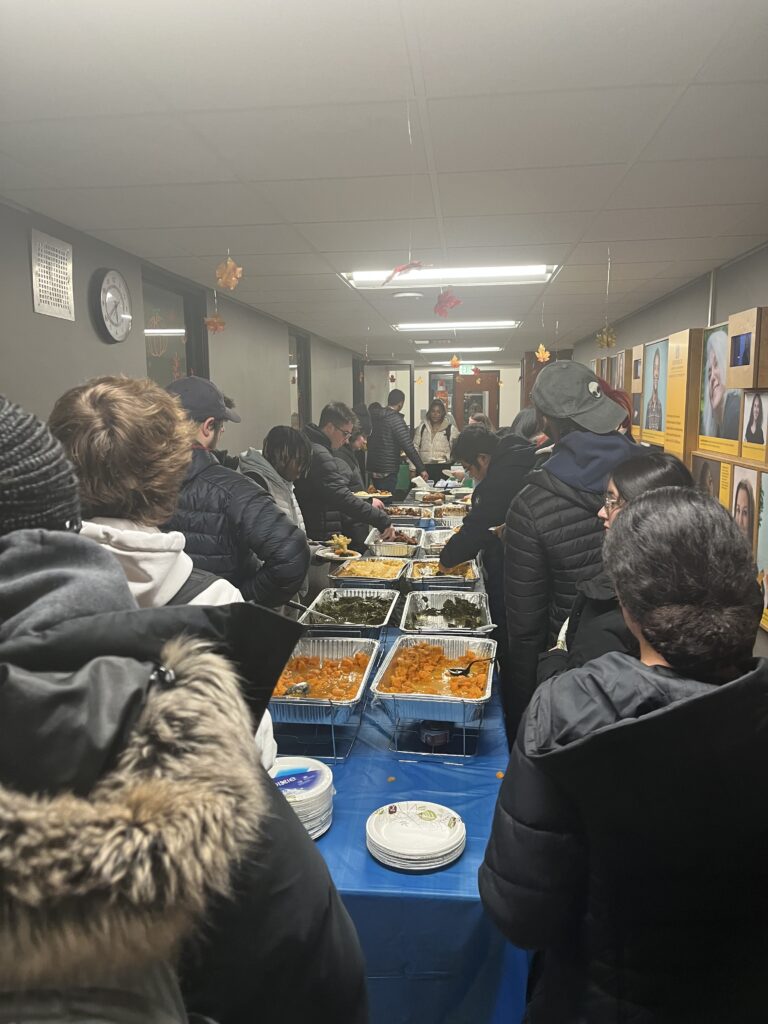
By spreading the word through EOP, the college hoped to cast a wider net and get even more people to attend. With encouragement from communication faculty and staff, students found a way to create impact and affect change for each other.
Having the support to plan such a large-scale event to create community meant a lot to these students.
“Friendsgiving means camaraderie, relationships, this is all about bringing together people and that’s what we want,” Brooker says.
Golden agrees, adding that connecting with faculty, staff and university leaders was particularly meaningful: “Friendsgiving means building community, making the campus come together, and getting students connected to our faculty members and leaders who we might think we are not able to connect to. But this shows that Marquette leaders and faculty members are very accessible to us, and we just want to show that partnership.”
As for Flippins, he is hopeful that Friendsgiving will become part of every fall semester.
“I’m excited to make this a tradition every year; ultimately, I want to get to know new people and make them feel comfortable here at Marquette University,” he says.
The students planning Friendsgiving have created a genuine space to build community with others across campus — and that’s good for the soul.
